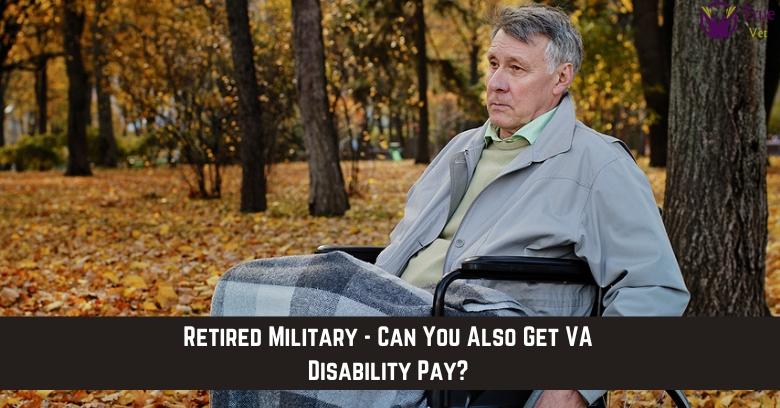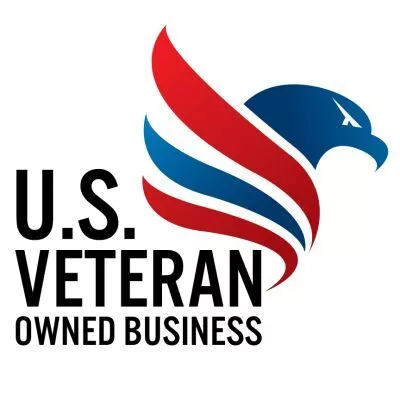North Carolina Veteran Financial Benefits
-
Income Taxes: If an individual had five years of creditable service as of August 12, 1989, all military retired pay is exempt from taxes. Effective for taxable years beginning on or after January 1, 2014, there are no deductions available for distributions from private retirement plans or government retirement plans that do not qualify as tax-exempt Bailey benefits.
-
Property Tax: Any Veteran discharged honorably and have a 100% permanently and totally disability rating are eligible for up to a $45,000 deduction in the assessed value of their home. Any surviving spouse of a Veteran is also eligible if they are drawing DIC from the VA.
-
State Taxes on U.S. Department of Veterans Affairs Military Disability Retired Pay: Military Disability Retirement Pay received as a pension, annuity or similar allowance for personal injury or sickness resulting from active service in the Armed Forces should not be included in taxable income if any of the following conditions apply:
-
You were entitled to receive a disability payment before September 25, 1975
-
You were a member of the military (active or reserves) or were under a binding written commitment to become a member on September 24, 1975
-
You receive disability payments for a combat-related injury. This is a personal injury or sickness that:
-
Resulted directly from armed conflict
-
Took place while you were engaged in extra-hazardous service
-
Took place under conditions simulating, including training exercises such as maneuvers
-
Was caused by an instrumentality of war
-
-
-
Military Survivor Benefit Plan (SBP)/ Reserve Component Survivor Benefit Plan (RCSBP)/ Retired Serviceman’s Family Protection Plan (RSFPP) North Carolina State Tax Benefits: Dividends and all other proceeds except interest on dividends from G. I. insurance policies are exempt from income taxation.
-
State Taxes on U.S. Department of Veterans Affairs Disability Dependency and Indemnity Compensation: Dependency and Indemnity Compensation (DIC) is a tax-free monetary benefit paid to eligible survivors of military service members who died in the line of duty or eligible survivors of Veterans whose death resulted from a service-related injury or disease.
-
Military Spouses Residency Relief Act: The North Carolina Military Spouses Residency Relief Act (the “Act”) prohibits North Carolina from taxing the income earned for services performed in North Carolina by a Spouse of a Service member stationed in North Carolina if:
-
The service member is present in North Carolina solely in compliance with military orders
-
The spouse is in North Carolina solely to be with the Service member
-
The spouse is domiciled in the same state as the Service member
-
Sales Tax:
-
Statewide: 4.75%
-
Counties: can levy an additional sales tax of no more than 2.75%
-
Current average sales tax (with local taxes included): 6.92%
RECREATION
Wildlife Resource Commission Disabled Veteran Hunting and Fishing Benefits: There are a number of discounted hunting and fishing licenses for eligible disabled Veterans.
Hunting and Fishing Licenses for Nonresident Service Members and their Dependents at Resident Rates: Members of the U.S. Armed Forces stationed in North Carolina, their Spouses and their dependents under age 18 residing with them, are deemed residents of North Carolina for the purpose of purchasing licenses issued by the Wildlife Resources Commission. Members of the U.S. Armed Forces on active duty outside the State of North Carolina shall be deemed an individual resident of the State for the purpose of purchasing short-term and annual hunting, fishing and trapping licenses.
EDUCATION PROGRAMS
National Guard Tuition Assistance Program (NCTAP): The North Carolina National Guard Tuition Assistance Program (NCTAP) provides tuition assistance for active members of the North Carolina Army or Air National Guard. Assistance for tuition to qualified members of the North Carolina National Guard is subject to the availability of funds and varies from semester to semester.
In-State Tuition for Non-Resident Service Members: Active-duty members of the armed services are charged in-state tuition while abiding in North Carolina because of their active military duty in the state. This applies to reservists too. “Abiding” means living here, even without intent to make it one’s permanent home. If subsequently reassigned outside North Carolina, the members continue to qualify for in-state tuition as long as they remain continuously enrolled in the program they were in prior to reassignment. A dependent relative who shares the abode of a member of the armed services who is in North Carolina on active duty also qualifies for in-state tuition.
Scholarship for Children of War Time Veterans: The North Carolina Scholarship Program was created to show its appreciation for the services and sacrifices of its war Veterans. The scholarship program applies to North Carolina schools. The scholarship is for eight academic semesters and the recipient has eight years to utilize the eight academic semesters. The Scholarship program has been established for the qualifying natural or an adopted Child (if adopted before the age of 15) Children of certain class categories of deceased, disabled, combat, or POW/MIA Veterans. The applicant must be under the age of 25 at the time of application. The Veteran’s qualifying criteria must have occurred during a period of war. At the time of application, the applicant must be domiciled and a resident of North Carolina. The deadline to apply is February 14. All paper applications are now obsolete and will be returned to the sender. In addition:
-
The Veteran parent was a legal resident of North Carolina at time of said Veteran’s entrance into that period of service in the Armed Forces during which eligibility is established
-
The applicant is the natural Child or adopted Child (if adopted before the age of 15) of an eligible Veteran and the Child/adopted Child was born in North Carolina and has been a resident of North Carolina continuously since birth
Interstate Compact on Educational Opportunity for Military Children: It is the purpose of this compact to remove barriers to educational success imposed on Children of military Families because of frequent moves and deployment of their parents by:
-
Facilitating the timely enrollment of children of military families and ensuring that they are not placed at a disadvantage due to difficulty in the transfer of educational records from the previous school district or variations in entrance or age requirements
-
Facilitating the student placement process through which children of military families are not disadvantaged by variations in attendance requirements, scheduling, sequencing, grading, course content or assessment
-
Facilitating the qualification and eligibility for enrollment, educational programs, and participation in extracurricular academic, athletic and social activities
-
Facilitating the on-time graduation of children of military families
-
Providing for the promulgation and enforcement of administrative rules implementing the provisions of this compact
-
Providing for the uniform collection and sharing of information between and among member states, schools and military families under this compact
-
Promoting coordination between this compact and other compacts affecting military children
-
Promoting flexibility and cooperation between the educational system, parents and the student in order to achieve educational success for the student
HOUSING: THE FOLLOWING ARE THE SITES FOR VETERANS HOMES:
North Carolina State Veterans Home at Black Mountains
North Carolina State Veterans Home at Fayetteville
North Carolina State Veterans Home at Kinston
North Carolina State Veterans Home at Salisbury
ELIGIBILITY FOR ADMISSION:
-
Veterans must have served in the Armed Forces (deployment necessary)
-
Discharged other than on dishonorable accounts
-
Resides in North Carolina for at least 24 months prior to the date of application
-
Must be referred by a licensed physician
-
Must be in need of skilled nursing care
-
Must be disabled by reason of age, disease, or other reasons determined through a physical exam
EMPLOYMENT AND JOB TRAINING: VETERANS PREFERENCE
All honorably discharged Veterans can have 5 points added to any state employment examination scores. Those with a VA service-connected disability will get 10 points added to their score.
State Employee Leave for Military Duty: Up to 120 hours for military leave per federal fiscal year. National Guard and Army Reserve Service members are eligible for military leave.
Differential Pay for Military Duty: The State of North Carolina may pay differential pay to State employees, which is the difference in military basic pay (excluding housing, subsistence allowances, etc.) and State salary (excluding any special payments such as shift premium, etc.) when military pay is less. Upon receipt of military Leave and Earnings Statement or similar document, the employee’s payroll office will calculate any amount due. If the documentation is not provided until the employee returns to work, the differential pay due will be determined at that time.
Uniformed Services Employment and Reemployment Rights Act: Uniformed Services Employment and Reemployment Rights Act (USERRA) protect civilian job rights and benefits for Veterans and members of Reserve components. USERRA also makes major improvements in protecting service member rights and benefits by clarifying the law, improving enforcement mechanisms, and adding Federal Government employees to those employees already eligible to receive the Department of Labor assistance in processing claims.
BURIALS AND MEMORIALS
Please note that your preference regarding burial in a national cemetery and use of a headstone provided by VA should be documented and kept with your paperwork and medical records.
National Cemeteries include:
New Bern: New Bern National Cemetery
Raleigh: Raleigh National Cemetery
Salisbury: Salisbury National Cemetery
Wilmington: Wilmington National Cemetery
NORTH CAROLINA VA BENEFIT RESOURCES
North Carolina provides Veterans with a Regional Benefits Office and multiple VA Medical Centers.
NORTH CAROLINA VA REGIONAL BENEFIT OFFICES
-
Winston-Salem: Winston-Salem Regional Office
NORTH CAROLINA VA MEDICAL CENTERS
-
Asheville: Asheville VA Medical Center
-
Durham: Durham VA Medical Center
-
Fayetteville: Fayetteville VA Medical Center
-
Salisbury: W.G. (Bill) Hefner VA Medical Center
Important information for North Carolina Veteran Benefits:
For Veterans applying for VA benefits for the first time, you must submit a copy of your DD 214 (discharge paperwork). This will provide your discharge status, along with your full name, social security number, branch of service, and dates for which you served. Honorable and general discharges qualify a Veteran for most VA benefits.
You should always keep your paperwork, along with your medical records, in a safe place where you and your family can have access to them. It is imperative to have it in a location where it cannot be destroyed or tampered with, which includes a safe.
Your eligibility for most VA benefits is based upon discharge from active military service under other than dishonorable conditions. Active service means full-time service as a member of the Army, Navy, Air Force, Marine Corps, Coast Guard, or as a commissioned officer of the Public Health Service, the Environmental Services Administration or the National Oceanic and Atmospheric Administration.
Any Veteran discharged from the military under the conditions of “Dishonorable” due to bad conduct discharges issued by general courts-martial may bar VA benefits. Veterans in prison and parolees may be eligible for certain VA benefits. VA regional offices can clarify the eligibility of prisoners, parolees, and individuals with multiple discharges issued under differing conditions.







